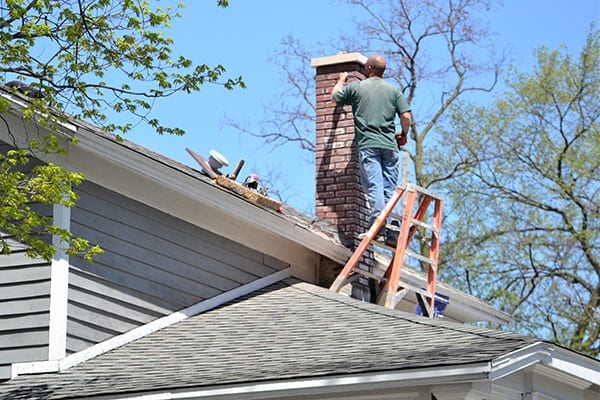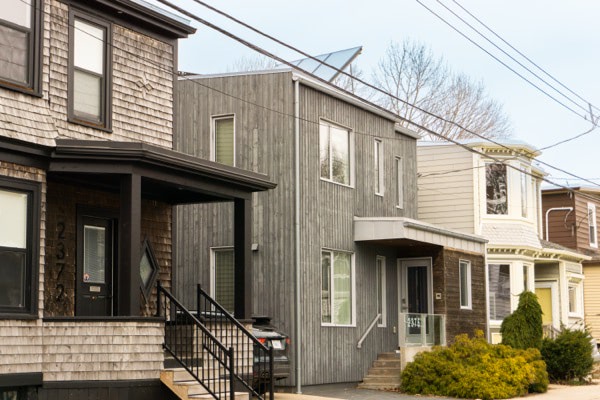How fast can you pay your mortgage off? Can you speed up the process? Here’s what you need to know!

Never skip out on a home inspection – here’s why!
Buying a home is a lengthy process, and almost no one enjoys the stress of trying to find the perfect place to live. By the time you find a home you love, you might be feeling exhausted with the market, ready to call it a day, and just take it with little to no consideration. This is a natural feeling, and it’s understandable to not want to add any more steps to the process. Unfortunately, you shouldn’t just take a home under any circumstances. One of the most important parts of buying a home comes now – the home inspection.
While everyone has different home preferences and tastes, we all value living in a safe and secure environment. Skipping a home inspection means running the risk of buying a home that doesn’t meet these standards, since some issues within a home are easy to miss without a thorough inspection.
Here are some big reasons not to neglect this important step.
Safety concerns
First, you want to buy a home that’s safe to live in. No matter what your budget is or what neighbourhood you favour, this will be true. Not every home is built the same, meaning the safety of the home you’re interested in should be put to the test.
A home inspector will check to make sure the building itself is safe. This means looking at the structure and the foundation, and testing for any weaknesses. True, most homes probably aren’t on the brink of collapse. An inspection will just let you know for sure how solid your potential home is, and whether it could cause problems in the future.
The more hazardous safety concern involves issues with mould growth or rot in a home. Mould can cause allergic reactions, irritate those with asthma, and in some cases, be toxic. Mould generally isn’t life threatening, but it’s also not something to have spreading through your house. While minor mould problems are easy to fix, the issue will spread out if it goes unnoticed.
Pest & plumbing issues
A home inspection can also uncover issues that aren’t necessarily major safety concerns, but are undesirable nonetheless. For example, an inspector might find evidence of a pest or rodent infestation somewhere in the home. This can include signs of damage to walls or items in the home, nests, or droppings. These things can be hard to spot since pests typically hide in corners or small spaces, but you don’t want to be sharing a home with these unexpected guests.
An inspector might also find leaks from poor plumbing or weak roofing, or drafts from poorly sealed windows. Water damage can warp flooring and stain ceilings, which you don’t want to be dealing with in your brand new home.
All these issues can be costly to fix, especially if they go undetected for a long time. Skipping a home inspection means you’re potentially investing in a home that will require more major payments in the near future.
Saving money
Yes, getting a home inspection adds to the immediate cost of buying a home. It might feel like one more thing to pay for, and you may be tempted to skip it if you can. On the other hand, it can save you big money in the future. Most inspections are relatively inexpensive, but repair costs for damages can be hefty. For example, the expenses for fixing a roofing issue will be much more expensive than the inspection that would have detected that problem. You’ll be kicking yourself down the road if you have to take on all the repair costs for an issue you could have avoided altogether.
Negotiating home price
Don’t use home inspection results just as a way to try to reduce the selling price of a home. This is a pain for sellers, especially if the results only turn up minor issues. However, major problems might be cause for lowering the price of a home. If the buyer is going to be responsible for fixing up the house, they can probably reasonably negotiate a price change. The other option is for the seller to agree to take care of certain fixes before the buyer moves in, which will take some weight off the buyer. At the end of the day, you should pay the appropriate amount for your new home, and an inspection helps determine what that might be.
Peace of mind
Finally, skipping a home inspection means never knowing for sure if your home is in good shape. You could find issues at any time, and this might put you on edge. A home inspection will let you sleep better at night knowing that your home is safe and unlikely to cause big problems. Of course, nothing is guaranteed, and unpredictable damage happens. The important thing to remember is you’ve prepared as best you can, and you won’t end up with a problem you could have avoided.
The home inspection process isn’t one to overlook when you’re buying a new home. It’s important to keep safety and cost top of mind, and an inspection helps you ensure both. If you’re looking to buy a home or refinance a mortgage, get in touch with us at Clinton Wilkins Mortgage Team! You can call us at (902) 482-2770 or contact us here.


